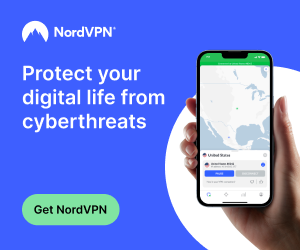Analysis: Israeli Spies Over the VPN Industry
In today’s digital age, VPNs (Virtual Private Networks) are crucial for maintaining online privacy, security, and anonymity. However, a recent press release by MintPress News has exposed alarming connections between several popular VPN services and Israeli intelligence agencies and Israeli spy activities. This discovery raises significant questions about the true privacy and security these VPN services offer. This article explores how Israeli spies over the VPN industry, the findings, discusses the implications for users, and provides an in-depth analysis from a privacy professional’s perspective.
The Investigation
The investigation reveals that numerous VPN services are either directly or indirectly controlled by Israeli intelligence agencies. These VPN companies, which promise to safeguard user data and privacy, may instead be compromising them due to their covert ties with Israeli intelligence.
Key Findings
- Ownership Ties: Several VPN providers, including ExpressVPN, CyberGhost, Private Internet Access, ZenMate, Intego Antivirus, are owned by companies with direct connections to former Israeli military and intelligence officials. These ownership ties are often obscured by complex corporate structures and rebranding strategies.
- Data Collection Practices: The investigation suggests that these VPNs may be collecting extensive user data, which could potentially be accessed by Israeli intelligence. This includes browsing history, personal information, payment details, IP addresses, and location data.
- Market Penetration: Israeli-controlled VPNs have a significant presence in the global market. Millions of users who rely on these services for privacy and security may be unknowingly exposing their data to surveillance.
Detailed Analysis of Israeli Spies Over VPN Providers
Ownership and Corporate Structures
One of the critical aspects of the investigation is the complex corporate structures used to mask the true ownership of these VPN services. Many of these companies are registered in offshore jurisdictions, making it difficult to trace their origins. However, a closer look at the corporate hierarchies reveals a pattern of ownership linked to Israeli entities.
For instance, Hola VPN, a widely used free VPN service, was found to have ties to Israeli intelligence. Hola is owned by Hola Networks Limited, which is based in Israel. The company was founded by Ofer Vilenski and Derry Shribman, both of whom have backgrounds in Israeli tech and military intelligence. This raises concerns about the potential misuse of user data collected by Hola VPN.
Similarly, the investigation uncovered connections between other VPN providers and Israeli intelligence. For example, the parent company of SaferVPN, another popular VPN service, is Strong Technology Ltd., which has known ties to the Israeli military. These connections are often hidden behind layers of corporate entities, making it challenging for users to discern the true ownership of the VPN services they use.
Data Privacy Concerns
The primary purpose of a VPN is to provide a secure and private browsing experience. However, if a VPN is controlled by entities with intelligence motives, it fundamentally undermines this purpose. The data collection practices of these VPNs are particularly concerning. Despite claiming to have strict no-log policies, there is evidence to suggest that user data is being logged and stored.
This data can include by Israeli Spies:
- Browsing history
- Personal information such as names and email addresses
- Payment information
- IP addresses and location data
- Metadata about user activity
The potential access to this data by Israeli intelligence poses significant risks, not just for individual privacy but also for national security, especially for users in countries with sensitive geopolitical relations with Israel.
Market Impact
The widespread use of Israeli-controlled VPNs is alarming. These services are often marketed aggressively, with significant investments in advertising and affiliate programs. As a result, they have captured a substantial share of the VPN market. Users, lured by promises of high-speed connections, robust security features, and attractive pricing, may be unaware of the underlying risks.
For example, PIA (Private Internet Access), a well-known VPN provider, was acquired by Kape Technologies, a company with historical ties to Israeli intelligence. Kape Technologies, formerly known as Crossrider, was initially involved in developing software for delivering targeted advertisements, a practice often linked to data collection. The acquisition raises concerns about the potential for user data to be accessed by Israeli intelligence through PIA.
Israeli Spies: Implications for Users
The implications of these findings are far-reaching. For users who prioritize privacy and security, the realization that their chosen VPN service may be compromised is unsettling. It calls into question the trustworthiness of these services and highlights the need for greater transparency and scrutiny in the VPN industry.
Recommendations for Users
- Research Ownership: Before subscribing to a VPN service, users should research its ownership and corporate structure. Transparency reports and independent audits can provide valuable insights.
- Evaluate Privacy Policies: Users should carefully read and evaluate the privacy policies of VPN services. Look for clear statements about data collection, storage, and sharing practices.
- Choose Reputable Providers: Opt for VPN providers with a proven track record of transparency and privacy. Independent reviews and user feedback can help identify trustworthy services.
- Use Open Source Options: Consider using open-source VPN solutions, which allow for greater scrutiny and transparency. These solutions are less likely to have hidden ties to intelligence agencies.
Privacy Professional Perspective
From a privacy professional’s viewpoint, the findings of the MintPress News investigation are deeply concerning. The fundamental promise of a VPN is to provide a secure and private browsing experience. If a VPN is controlled by entities with intelligence motives, it fundamentally undermines this promise. Users place their trust in VPN providers to safeguard their data, and any breach of this trust has serious implications.
The investigation underscores the importance of due diligence when selecting a VPN service. Users should not take privacy claims at face value but should instead critically assess the ownership, corporate structure, and privacy policies of VPN providers. The need for greater transparency and independent audits in the VPN industry is evident.
Transparency and Accountability
The investigation highlights a significant gap in transparency and accountability within the VPN industry. Many VPN providers do not disclose their ownership or corporate structure, making it difficult for users to make informed decisions. This lack of transparency is particularly concerning given the sensitive nature of the data that VPNs handle.
To address these issues, VPN providers should be required to disclose their ownership and corporate structure. Additionally, independent audits of their data collection and storage practices should be conducted regularly to ensure compliance with their privacy policies. These measures would help restore trust in the VPN industry and provide users with the information they need to make informed choices.
Regulatory Oversight
There is also a need for greater regulatory oversight of the VPN industry. Currently, the industry operates with minimal regulation, allowing companies to make broad privacy claims without substantiating them. Regulatory bodies should establish clear guidelines for data collection, storage, and sharing practices within the VPN industry. These guidelines should include requirements for transparency, independent audits, and user consent.
Conclusion
The MintPress News investigation has shed light on a troubling aspect of the VPN industry. The potential infiltration of Israeli intelligence agencies into popular VPN services raises significant privacy and security concerns. Users must stay vigilant and informed, conducting thorough research before choosing a VPN provider. By prioritizing transparency, privacy, and security, users can better protect themselves in the digital age.
For a deeper dive into the findings and implications of Israeli Spies over VPN services, you can read the full article on MintPress News.


